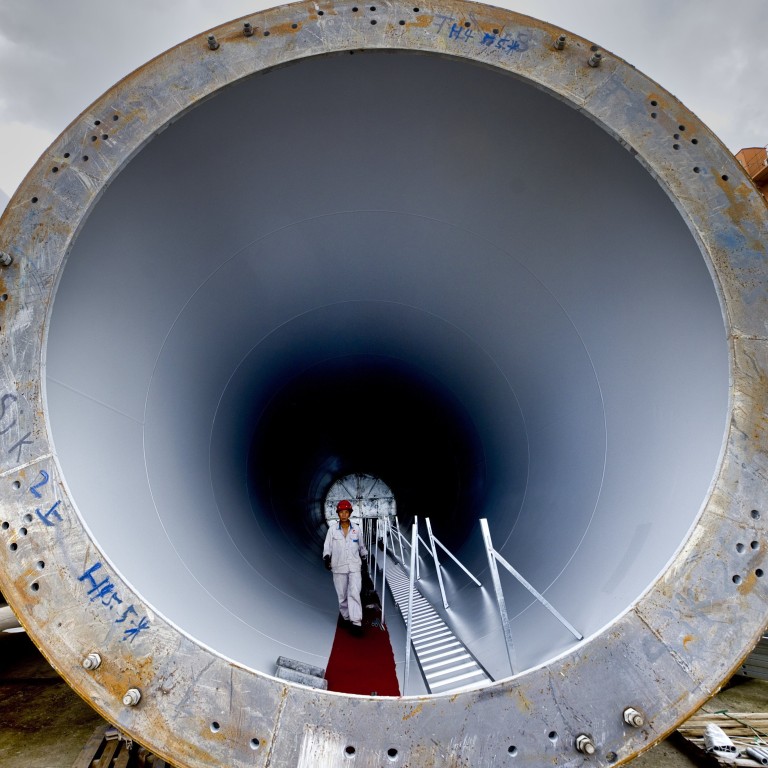
China-Australia relations: Canberra to ‘robustly defend’ itself in WTO case after Beijing escalates tariff dispute
- The World Trade Organization (WTO) has agreed to establish a dispute-settlement panel to address Beijing’s complaint against Australia
- Australia imposed anti-dumping tariffs on imports of wind towers, stainless steel sinks and railway wheels between 2014 and 2019
Australia will “robustly defend” itself in its World Trade Organization (WTO) case with China over Canberra’s decision to impose anti-dumping duties on imports of wind towers, stainless steel sinks and railway wheels, which will now be heard before a dispute-settlement panel.
Beijing has since June been urging Canberra to rethink three anti-dumping tariffs Australia imposed on its exports between 2014 and 2019.
China and Australia had held meetings in August, but these consultations failed to resolve the dispute.
In requesting arbitration, Beijing said the Australian tariffs violated the WTO’s trading rules and anti-dumping and anti-subsidy regulations between 2014 and 2020.
The ability to take legitimate remedial action against dumped and subsidised imports forms part of the critical balance of members’ rights and obligations provided under the WTO rules.
“Australia will robustly defend this matter before a WTO panel,” Australian trade minister Dan Tehan said.
“The ability to take legitimate remedial action against dumped and subsidised imports forms part of the critical balance of members’ rights and obligations provided under the WTO rules.”
Canberra expressed its disappointment over China’s decision to call for a panel a second time around, saying its trade remedy system was “independent, transparent, non-discriminatory and rules-based”.
China said the issues raised in its request highlight a series of continuous and long-standing failures by Australia in meeting its obligations under the relevant WTO agreements
Australia said it was confident it had complied with its WTO obligations and that it was ready to resolve the matter with China through further bilateral discussions.
Beijing previously contested that Canberra did not take into consideration the cost of production when determining whether its products were sold at unfair prices in the Australian market, a WTO document released in January showed.
China has alleged that Australia had unfairly disregarded Chinese accounting records in its decision to dismiss local costs of production as invalid.
“China said the issues raised in its request highlight a series of continuous and long-standing failures by Australia in meeting its obligations under the relevant WTO agreements,” said a summary of Monday’s meeting on the WTO website.
“The trade remedy investigations and the decisions made by Australia against Chinese exporters lacked factual bases, were opaquely explained and are legally undisciplined, China said.”
100 million litres and counting: China, Australia move ahead with wine dispute
Anti-dumping and anti-subsidy duties are protectionist tariffs that governments impose on imports that they deem to be below fair market value, usually at prices lower than the exporting countries’ domestic markets.
Australia also has initiated two WTO arbitration panels investigating its complaints over China’s imposition of anti-dumping and anti-subsidy duties on Australian wine and barley since the current conflict between the two countries escalated in April 2020.
Australia imposed 85 sets of anti-dumping and anti-subsidy tariffs against China between 1995 and 2020, and until now, Beijing had not contested any of them.
During the same period, China initiated four sets of anti-dumping and anti-subsidy duties against Australian products, and Australia has contested all of them.

